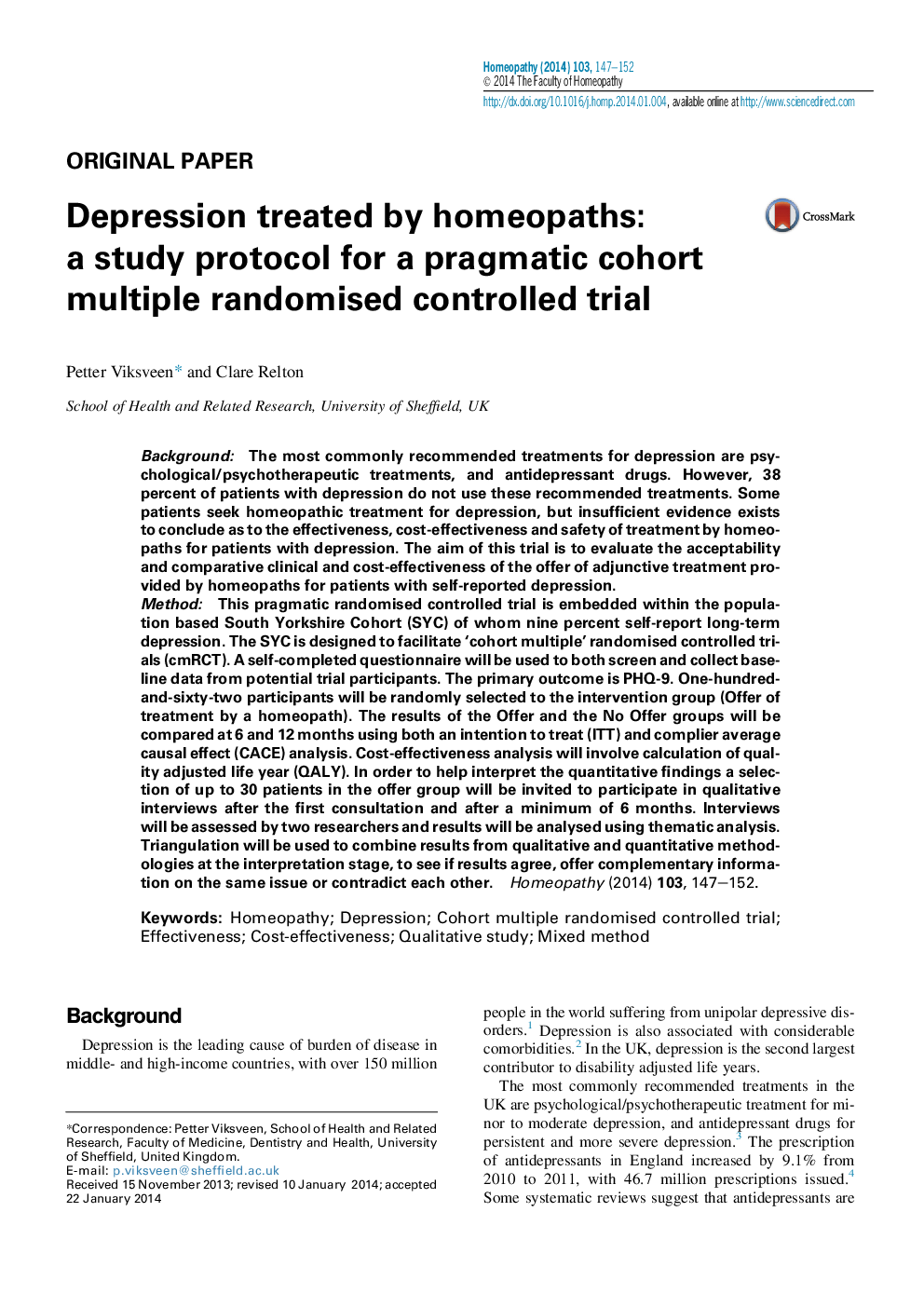| Article ID | Journal | Published Year | Pages | File Type |
|---|---|---|---|---|
| 5865794 | Homeopathy | 2014 | 6 Pages |
BackgroundThe most commonly recommended treatments for depression are psychological/psychotherapeutic treatments, and antidepressant drugs. However, 38 percent of patients with depression do not use these recommended treatments. Some patients seek homeopathic treatment for depression, but insufficient evidence exists to conclude as to the effectiveness, cost-effectiveness and safety of treatment by homeopaths for patients with depression. The aim of this trial is to evaluate the acceptability and comparative clinical and cost-effectiveness of the offer of adjunctive treatment provided by homeopaths for patients with self-reported depression.MethodThis pragmatic randomised controlled trial is embedded within the population based South Yorkshire Cohort (SYC) of whom nine percent self-report long-term depression. The SYC is designed to facilitate 'cohort multiple' randomised controlled trials (cmRCT). A self-completed questionnaire will be used to both screen and collect baseline data from potential trial participants. The primary outcome is PHQ-9. One-hundred-and-sixty-two participants will be randomly selected to the intervention group (Offer of treatment by a homeopath). The results of the Offer and the No Offer groups will be compared at 6 and 12 months using both an intention to treat (ITT) and complier average causal effect (CACE) analysis. Cost-effectiveness analysis will involve calculation of quality adjusted life year (QALY). In order to help interpret the quantitative findings a selection of up to 30 patients in the offer group will be invited to participate in qualitative interviews after the first consultation and after a minimum of 6 months. Interviews will be assessed by two researchers and results will be analysed using thematic analysis. Triangulation will be used to combine results from qualitative and quantitative methodologies at the interpretation stage, to see if results agree, offer complementary information on the same issue or contradict each other.
